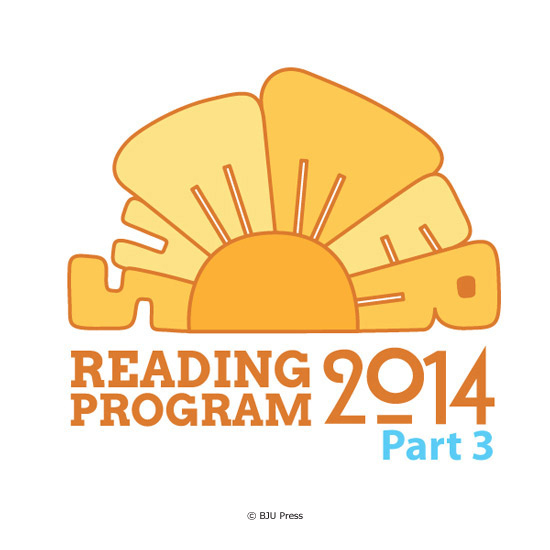Over the past few weeks, we’ve been sharing portions of an interview with Nancy Lohr, author and acquisitions editor for JourneyForth. In the first part of the interview, Nancy explained how the BJU Press Summer Reading Program works and gave a few tips on how to encourage reluctant readers. During the second part, she discussed how children with special needs can participate in the program. Nancy also shared some suggestions for choosing reading materials for children. Below is the final part of our interview.

Do you have any suggestions for dealing with objectionable content in children’s literature?
It is no secret that there are plenty of books published for children and teens that do not have a biblical worldview in either the philosophical foundation of the story or in the language and actions of the characters. So what are parents to do? One approach is to pre-read all of the books children read with the goal of presenting material that has no “warts,” but that can consume so much time that children will be waiting for you.
Another approach is to choose books carefully but be prepared to discuss the content when your children encounter something in print that doesn’t square with Scripture and the direction of your home. Children in my library loved to recognize statements in books about dinosaurs that didn’t square with the creation account in Genesis 1. Depending on the age and skill of your reader, you might want to purposely read a book from a different perspective to open discussions. Armed with a trustworthy anthology, search for books from authors and publishers that are a good fit for your family. Read the annotations and discuss with your child what kinds of concerns he or she might find in a given book, and then ask your child to share a sentence or paragraph with you that matches your concern. Make these talking points, and . . . well, talk.
Help your child build discernment as he or she reads. This is a perfect time to develop the concept of our being in the world, but not of the world. Show how to go to Scripture to determine a biblical response. And give your child permission to stop reading if the content is not suitable, and then move on to another, better book.
How can parents provide incentives along the way during the BJU Press Summer Reading Program?
Additional encouragement through the eight-week program may be helpful if it is suited to the individual children. Perhaps your avid readers would like to shoot for a specific number during their reading time, like a large number of minutes or pages or books. These readers might like to read from a variety of categories that include their comfort zones, but stretch them into types of books they haven’t read yet.
Maybe the whole family can go to a favorite place outdoors and enjoy a “book-nic.” Take a blanket, pack a picnic basket meal, and carry along a book for everyone.
If your children like stickers or trinkets or snacks, consider awarding these at milestones during the program.
Incentives can help keep your children motivated during the program, but the best outcome any of us could hope for is that the children begin to be motivated by reading itself with no additional motivation needed. You are there when you hear, “Please, Mom, just one more chapter?”
How can parents model good reading habits for their children?
Join your children during their reading time to read material that interests you, and if what you are reading makes you laugh out loud, I can almost guarantee that you will hear, “What? What’s so funny?” Be in the habit of sharing with them from your own reading. “Hey, listen to this” ought to be a common phrase in your home. Model for them what you are asking of them.
Do you have a reading-related question that we haven’t covered? Let us know in a comment, and we’ll do our best to answer.
Leave a Reply